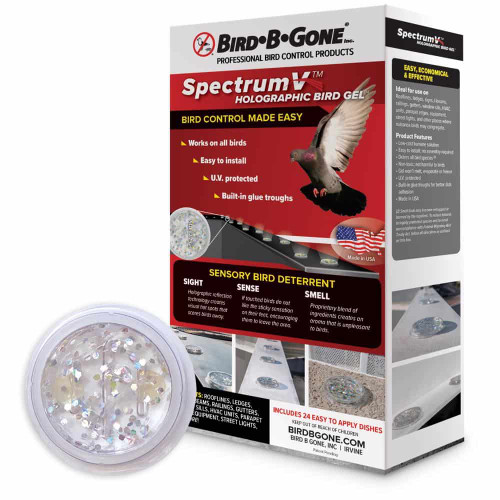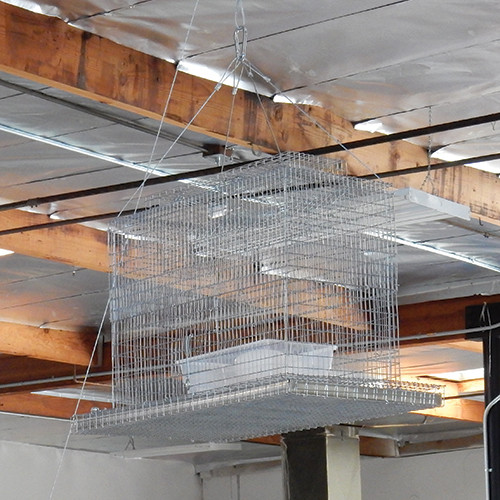Sparrow Control
How to Get Rid of Sparrows

Keep sparrows away from your property with effective Sparrow control products that are humane and affordable products from Bird B Gone.
Small and intelligent, sparrows are mostly brown and grey with black striping around the eyes and neck. They are typically 6.3 inches long and weigh just over an ounce. The birds are highly adaptable and often nest in structures, living off food scraps. Sparrows prefer building their nests in house shutters, drainage piping, building rafters and corrugated metal siding and other small, enclosed places. They have about 20 offspring a year, and without effective bird controls, their numbers rise rapidly to infestation levels.
Why Sparrow Control?
When they congregate in large flocks, sparrows can be very problematic. They’re not only noisy, but their presence around manufacturing and food-processing plants can create health problems. The bacteria, fungal agents and ectoparasites found in sparrow droppings and nesting materials can contribute to such serious diseases as histoplasmosis, encephalitis, salmonella, meningitis and toxoplasmosis. Sparrow nests can back up gutters and drainage pipes, and they can clog machinery and even start fires around hot metal equipment. The acidic nature of sparrow droppings can be highly corrosive, leading to extensive damage to equipment. The weekly cleanup costs, especially those mandated around restaurants and outdoor eateries can be very extensive. Failure to clean up bird droppings and nests can risk a shut down by health inspectors. Care must be exercised, even when cleaning dried sparrow droppings, as the dust can still release airborne bacteria that can be inhaled and cause respiratory problems.

How to Get Rid of Sparrows
There are several humane options for deterring sparrows from landing or nesting on your property. It’s important to thoroughly clean up any bird droppings or nesting materials before any deterrent products are installed (sparrows are attracted to the scent of their droppings and nests). Here are a few steps you can take to get rid of sparrows:
- Block sparrows from entering eaves or other open areas with bird netting.
- Treat ledges and rafters with Transparent Bird Gel to prevent sparrows from landing. This low-profile gel will last up to 6 months outdoors.
- Install Bird Slope under eaves or other areas to prevent sparrows from nesting or roosting.
Using Sparrow Bird Netting
When using sparrow netting to screen off small birds, make sure to choose a mesh size of 3/4” or smaller. Using anything larger will allow smaller birds to pass through.
Remove Food Sources
- Sparrows may be attracted to your garden, lawn area or song bird feeders as a food source. Remove feeders to limit this attraction.
- Remove leftover food on the floor and tables of open-air eateries. Tightly close all trash containers.
- Discourage the feeding of sparrows by children or employees.
Sparrow Scare Tactics
Sparrows are quick and alert to any perceived threats, so scare tactics can be highly effective.
- Create a visual distraction zone by hanging Visual Deterrents with reflective surfaces to scare birds
- Hawks are a natural predator of sparrows. Use the Hawk Decoy in gardens, patios, balconies and other open spaces to scare sparrows away.
- Sound deterrents alert sparrows of nearby danger by broadcasting predator and sparrow distress calls, making them want to flee the area.
Humane Bird Removal/Professional Installer of Sparrow Deterrents
If you don’t have the time, resources or expertise to solve your goose problem, several wildlife and pest control companies offer bird control as a service. These professionals can install bird control products and offer other services such as clean-up and humane trap and goose removal.












